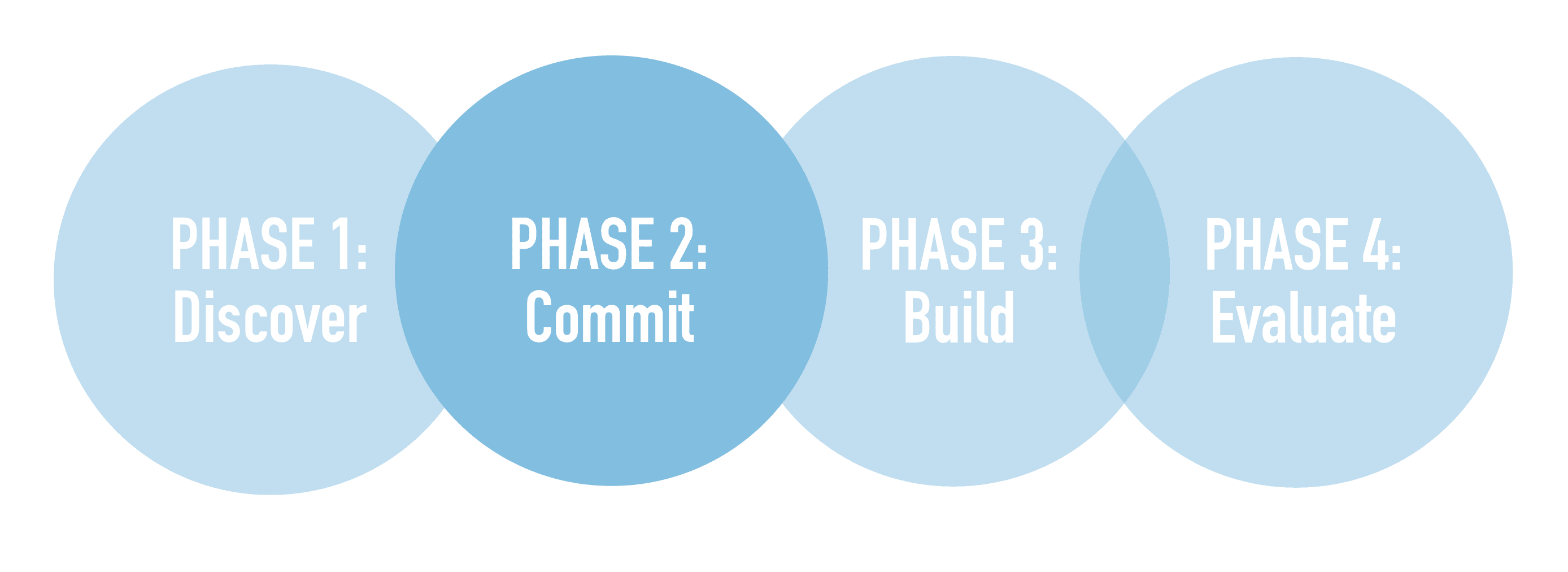Photo by Annie Spratt, unsplash.com

Step 4: "Analyze challenges and opportunities from information gathered during “Discover and Assess” phase. Then choose an initial focus, perhaps one to four of the most significant areas that are of importance to the community and that could benefit by being addressed through compassionate action."
Your coalition may easily agree on the significant challenges facing your community. But just as likely, you may find some disagreement about what issues you should focus on first. If you have an inclusive group and if you’ve done your homework in Phase One — perhaps using the Determining Issues — your group will have a pretty clear picture of what is going on in your community. You should know not only what the problems are but also what is currently being done to address those problems. Take the time to consider and evaluate the impact of each challenge on the community and to develop information that will help you to prioritize action plans.
Group discussion may include questions about where and how your group can make the most positive impact (alleviating pain and suffering) given your current resources. For example, once the group has a list of what it believes to be significant issues, it might ask the following questions about each of the issues in order to be able to plan and prioritize next steps.
- What is the most significant challenge facing our community?
- How do we know this is a significant challenge?
- Who is suffering as long as this issue is not resolved?
- Who is currently helping to alleviate this issue?
- What do we know about the causes of this issue?
- What can we learn from other communities who have faced this challenge?
- How might we engage others who have been working with this issue to help inform our own work?
- What resources—time, people, funding, partnerships--would we need to address this challenge?
- How can we ensure that our intentions and actions are driven by compassion?
- What difference can we make?
- What impact will our actions have on our broader community?
Step 5: "Based upon prioritized choices, create a plan to move forward including specific short-term and long-term objectives, action plans, and anticipated outcomes. Plan purposeful, measurable actions toward fulfilling your objectives with designated responsibilities and appropriate time frames."
Below, in the Resources section, you will find some useful ideas and guidelines for planning and for deciding on what to do next. These guidelines will help you decide, for example, whether to work through existing channels to affect policy, work to gain wide community awareness and support, focus on funding to enhance current programs, and/or create and launch a new initiative on your own.
Your group may decide to lend its support to an existing group that is addressing some aspect of a particular problem instead of creating a new program. For example, if homelessness is viewed as a significant challenge and an interfaith group or an NGO currently provides meals to this population on a regular basis, your group may want to help enlist volunteers, increase food donations, or begin a community garden to assist this group in their efforts. Or you may choose to work with the existing group by providing some related benefit—job counseling, clothing, day care, mental health counseling, or shelter for the homeless population.
When you are motivated by compassion—a heartfelt empathy for those who are suffering that moves you to care about and take action for the well-being of all members of your community--you become part of the growing global compassion movement. As an individual, you can sign the Charter to add your support to this movement. As a group of individuals concerned for your community, you are encouraged to register your campaign with the Charter for Compassion International. Whether as an individual or a group organized to create a Compassionate Community, you will become part of a complex “network of networks” that includes like-minded individuals, partner organizations, and cities and communities all over the world. In addition, you can choose to become a supporting Sponsor of the Charter— lending either just your moral support or contributing on an annual basis if that is something you want to do.
As your compassionate action group grows, you may want to seek the support of organizations in your community who also care about the well-being of the community. By encouraging groups and organizations to become Partners of the Charter, you will expand and strengthen your initiative, extend ownership, increase perspective, and gain support for your work to bring an attitude of compassion to all community activities. The Charter for Compassion encourages groups and organizations to become Partners by identifying with one or more of the following sectors:
Arts, Business, Education, Environment, Gender Partnerships, Health, Peace, Religion, Spirituality and Interfaith, Restorative Justice, Science and Research, Social Justice and Social Services
Step 6: "Make a formal and public commitment to the concepts contained in the Charter for Compassion-- by proclamation, resolution, or a completed action plan."
The Charter for Compassion does not prescribe what your group should do and how to do it. It does not provide any oversight, seal of approval, or certification. Instead, it serves to provide encouragement, information, and resources that will help you connect to the global movement for compassion. When your group has completed an assessment and created an action plan, it is time to make a more formal commitment. For example, your community may make a proclamation or a resolution within your local government. Then share your commitment with the Charter for Compassion so that other communities around the globe can learn from and share with you.

Photo by Dallas Reedy, unsplash.com
Resources
Visit the Participating Communities section of the Charter's website. Here you will find organizational and action plans from Denver which presents organizing as a "Board Game," to highlights from other compassionate city/community campaigns.
Refer to various sections in the Charter's Compassionate Communities Reader: Organizing Processes, Problem Solving and Shareable Community Ideas. Many of the articles in the Compassion Reader support the tools in the Charter's Toolbox.
Consult the article, "Leadership in the Age of Complexity: From Hero to Host," by Margaret Wheatley (with Debbie Frieze). The article presents some great insights regarding the hosting style of leadership.
Read articles on Collective Impact printed in the Nonprofit Quarterly may also be of interest: Collaborating for Equity and Justice: Moving Beyond Collective Impact and 10 Places Where Collective Impact Gets it Wrong.
Visit the Participating Communities section and you will find resources that may be supportive of your own work. You'll find declarations from the country of Botswana, the Republic of Djibouti to proclamations from Louisville, Seattle and Toledo to press releases and resolutions. All of these are in PDF formats.


